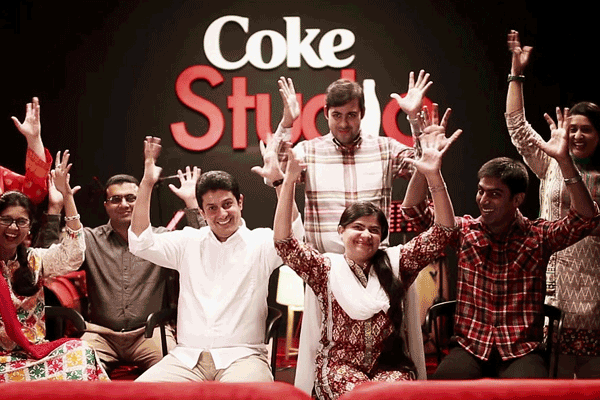Sounds of Silence: Coke Studio for the Deaf
“The general perception is that deaf people and music just don’t go together. They cannot experience music,” says Sara Sheikh. Fortunately, the folks at Coke Studio understood otherwise, recently coming up with the path-breaking Coke Studio for the Deaf. The first such initiative in Pakistan, Coke Studio has opened a small door into a myriad possibilities.
“It all began when we sent Coke Studio a video of our students performing Sohni Dharti,” recalls Sara who is Donor Engagement Director at Deaf Reach. A crucial part of her job is to connect the deaf world with the hearing world and the Coke project is an ideal example of that endeavor. An earlier video of the Deaf Reach students performing the national anthem in sign language had also gone viral. “But all this was quite some time ago,” continues Sara. “Then suddenly one day we got a call from Coke, saying that they were interested in collaborating with us and they wanted to visit our schools and do some filming there.”
The video film made about the project was filmed partially at home and partially in Bangkok, Thailand, where the special studio was set up. The film-making team, led by acclaimed director Sarmad Khoosat, spent considerable time at the Deaf Reach School, talking with students and trying to understand their world. Then six students, along with an interpreter and Sara Sheikh were flown to Bangkok.
Two songs had been prepared, Tajdare Haram and Sammi Meri Waar. The students were already familiar with the songs since these are both traditional classics and everyone knew the lyrics. “Also they watch Coke Studio at home with their families, even if they can’t hear.” The deaf students were seated in special sofas which are embedded with LED lights and a vibrating mat. The mat keeps up vibrations, or a pulsating sensation in rhythm with the music . The experience is further enhanced by the LED lights which also flash in unison with the music and change colour with the songs. “So the students had to keep their hand on the chair to feel the sensation which is why they aren’t clapping or dancing,” says Sara. But even though they were not moving much, their expressions speak volumes. There is that look of wonder, of joy and disappointment when it all stops.
“It was an incredible experience from start to finish. Understandably, the students were extremely hyper and excited,” says Sara. “For one, most of them were travelling for the first time. Then they were treated so respectfully throughout. And ultimately they were gifted something so beautiful.”
The possibilities opened up by these new technologies are many. Abroad, certain concerts have special enclosures for the deaf. “They have closed captioning of the lyrics, lights and special jackets with built in sensors, “ explains Sara. She points out that deaf people may not hear music but they participate fully in any occasions involving music. “At weddings, they will bang on the dhol, or dance. They get involved, have fun. They don’t hold back. What this project has done is to widen the parameters of those who can enjoy the musical experience. “ Coke plans to import the necessary equipment to Pakistan to bring this experience to more people with hearing loss.
Sara also appreciates the sensitivity with which Sarmad Khoosat handled the project. ” He did a wonderful job. In fact, he called it a faith-restoring experience for himself.”
Deaf Reach has 1000 students in six campuses across Pakistan, Besides schooling, they also provide vocational training to their students and even help them find employment later. They have developed Pakistani sign language and are currently engaged in preparing a digital curriculum which can be used by any school to cater to deaf children. There are some nine million Pakistanis with some form of hearing loss. Initiatives like the Coke Studio project can go a long way towards building a more inclusive Pakistani society in which differently abled people become part of the mainstream.
Watch the film below.
Zahra Chughtai has worked and written for Pakistan's leading publications including Newsline, the Herald and Dawn. She continues to write freelance.




